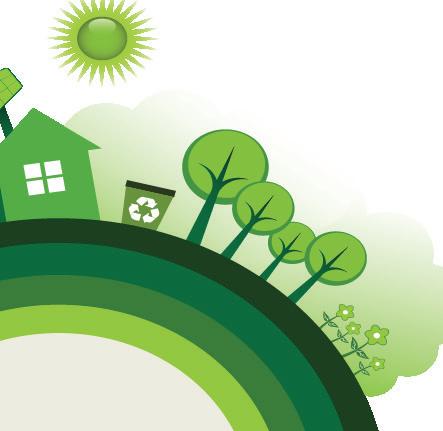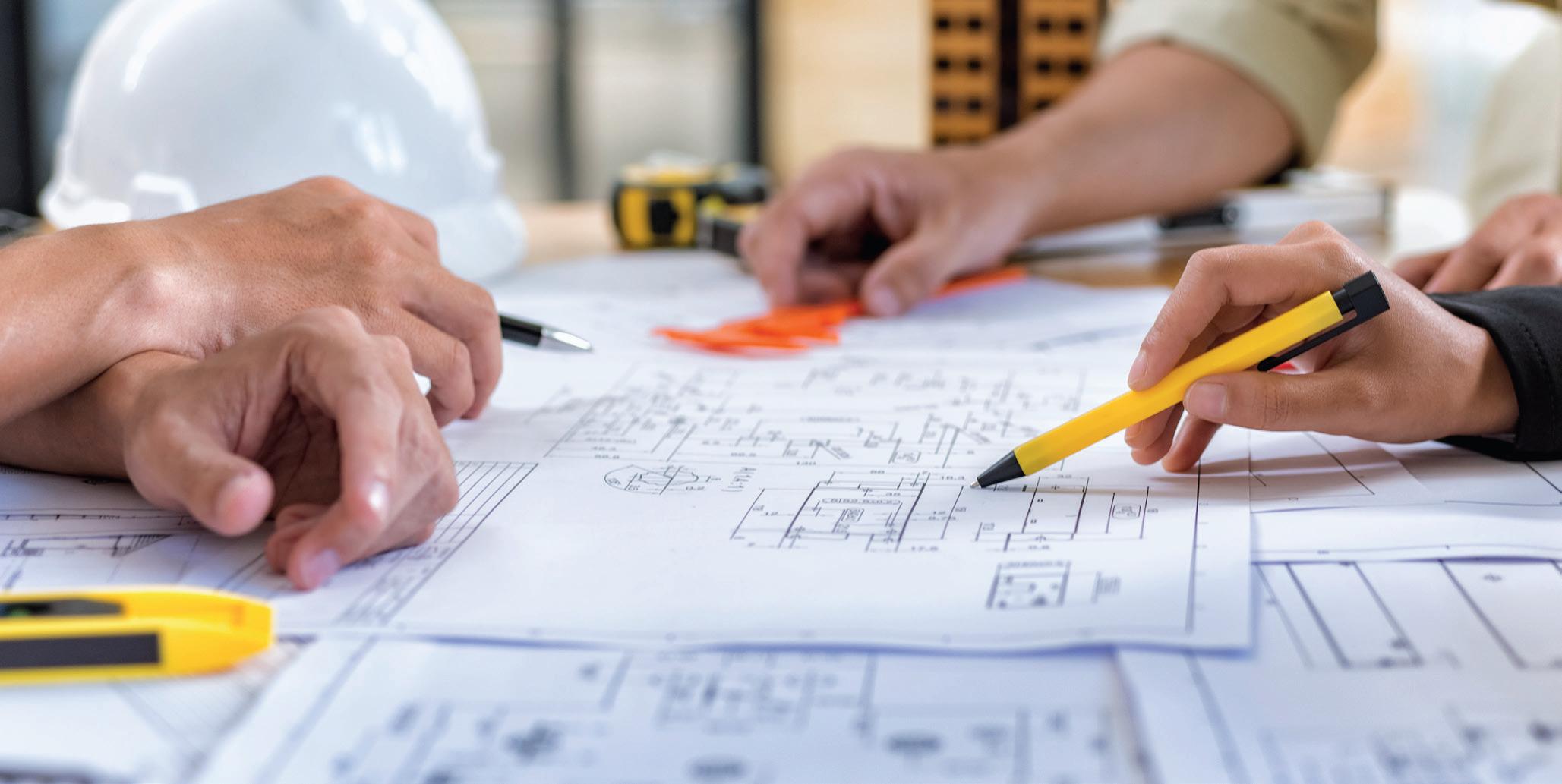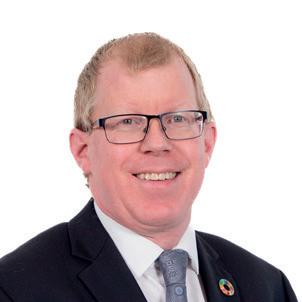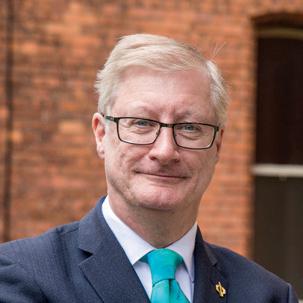Future of Infrastructure



Paul Sheridan, Director of Main Contracting, Construction Industry Federation Page 02
Damien Owens, Director General, Engineers Ireland Page 06
Q4 2022 | A promotional supplement distributed on behalf of Mediaplanet, which takes sole responsibility for its content
“That way, we construct the right infrastructure, in the right way and in the right places.”
“High-quality infrastructure is an important element of modern society.”
www.businessnews.ie
Infrastructure that lasts a hundred years will yield more benefits

By constructing the right infrastructure, in the right way and place, we create the type of Irish society we need — with a progressive economy to support it.
Infrastructure will be critical to Housing For All, the Climate Action Plan, better communities and commercial and economic growth. Our homes need environmentally sustainable communities.

Communities also need connectivity, water, sewage, energy, schools, businesses and healthcare. The National Development Plan sets out the key infrastructure required to support the delivery of these vital resources.
Forward-thinking construction
The construction industry acknowledges its role in the reduction of carbon emissions and that the construction phase can lead to increases in carbon in the short term. However, construction companies offer a unique solution — in which the life-cycle emissions of many projects like greenways, net zero buildings, water, roads and public transport provide long-term, sustainable benefits.
The National Investment Framework for Transport in Ireland, published by Minister Ryan’s Department, states that one of its priorities is enhanced regional and rural connectivity. It includes roads as an important element of connecting rural communities, supporting the movement of freight and the international connectivity of our ports for people, goods, services and tourism.

We need to think long-term and avoid a narrow focus on the construction period that may last two years when the constructed asset could last more than 100 years. Getting the most sustainable benefits out of the other 98 years is the priority. We must consider the whole lifecycle-costing of our constructed environment.
Connecting communities and industries

Construction companies have a pivotal role in the delivery of the National Development Plan. By delivering the built environment, they help connect communities and support our way of life. They are an engine of

Getting the most sustainable benefits out of the other 98 years is the priority. We must consider the whole lifecycle-costing of our constructed environment.
Ireland’s economy and underpin business activity across other industries like high-tech manufacturing, pharma, ICT and commercial services. They construct key infrastructures like schools, offices, water plants, energy generation, bridges, active travel greenways, bus corridors, tourist attractions and cultural and sporting centres.
A healthy and sustainable construction industry can support the National Development Plan. The Construction Industry Federation believes this is achievable if the Government continues to develop a clear pipeline of construction-ready work, a pragmatic and proportionate approach to procurement strategy and a partnership approach with equitable risk management and alignment — with standard forms of international contracts like the NEC. That way, we construct the right infrastructure, in the right way and the right places.
02 READ MORE AT BUSINESSNEWS.IE AN INDEPENDENT SUPPLEMENT FROM MEDIAPLANET WHO TAKE SOLE RESPONSIBILITY FOR ITS CONTENT MEDIAPLANET
Project Manager: Cian Fitton cian.fitton@mediaplanet.com Business Development Manager: Lucy Harris Managing Director: Alex Williams Head of Ireland: Ross Bannatyne | Head of Print & Design: Thomas Kent Designer: Aimee Rayment Content Editor: Angelica Hackett O’Toole | Head of Digital Operations: Harvey O’Donnell Paid Media Manager: Jonni Asfaha Social & Web Editor: Henry Phillips Digital Assistant: Carolina Galbraith Duarte All images supplied by Gettyimages, unless otherwise specified @BusinessnewsIE Contact information: uk.info@mediaplanet.com or +44 (0) 203 642 0737 @MediaplanetUK Please recycle
IN THIS ISSUE
Paul Sheridan Director of Main Contracting, Construction Industry Federation
“Managing growth sustainably remains an important cornerstone in the development of national planning policy.”
Page
Darragh O’Brien Minister for Housing, Local Government and Heritage
04
Irish
“Approximately 500,000
homes will be upgraded by 2030, and we have already started our journey.”
Page
Want to get involved in a future campaign? Send us an email at uk.info@mediaplanet.com
Dr Ciaran Byrne Director of National Retrofit, Sustainable Energy Authority of Ireland
04
Why building sustainably is the future of infrastructure
Project Ireland 2040, the Government’s long-term strategy to build a more resilient and sustainable future, looks to ensure the alignment of investment plans with the stated National Strategic Objectives for 2040 in a cohesive and defined manner.

Sustainable buildings and infrastructure serve the people who use them as well as the greater societal need. At Sisk, we have an important role as an Irish-based, internationally active construction and civil engineering business. Our ambition is to lead in the industries in which we work, with the sustainable management of our operations throughout their entire life cycle, while upholding our core values and delivering excellence for our people and planet.

The need for investment
By 2040, there will be approximately 1 million additional people living in Ireland. This population growth will require hundreds of thousands of new jobs, new homes, heightened cultural and social amenities, enhanced regional connectivity and improved environmental sustainability. The need for sustainable infrastructure in Ireland is clear.

We are already working to deliver Project Ireland 2040, constructing a series of wastewater treatment projects and delivering improvements to our railway, aviation and marine infrastructure as well as working hard to deliver better regional road connectivity via projects such as the Dunkettle Interchange Project in Cork.
Delivering education and tourism infrastructure
We help clients deliver major construction projects in the core sectors we operate in such as office and commercial projects, data and ICT, life sciences, pharma, residential, leisure and retail. We have delved into educational infrastructure in recent years including the world-class facilities at the Grangegorman TU Dublin campus, and we are part of the regeneration project in Limerick with Project Opera.
Tourism is a key economic sector; and this year, we delivered the new facilities at the iconic Avondale House in Co. Wicklow as well as recently delivering the world-class Center Parcs Project in Longford.
We want to ensure that we are tackling the challenges that lie ahead for our industry and wider society. We have
people across the business with the skills, expertise and — most importantly — the passion to deliver the change required.
Aiming to deliver sustainably Sisk is committed to being carbon neutral by 2030. It is at the heart of our business strategy. It informs everything we do as a business as we grow and expand the services we offer.
Construction is a sector that needs to play its part in reversing the climate crisis by fundamentally changing how we go about our business. Our materials, how and where we source them, how we move them about and how we create the energy to power the vehicles and machines we use are at the heart of our journey.
In the delivery of our projects across civil engineering (building roads, railways, bridges, harbours) or our construction business (building offices, shops, schools and homes), we work collaboratively with our clients, supply chain partners and wider stakeholders to understand the key project drivers. We enable the development of solutions that truly fulfil project needs while providing the best value for our clients and making a difference.
Choosing suppliers carefully
Sisk ensures that decisions taken regarding the procurement and engagement of any organisations, individuals, goods or services are governed by integrating environmental, legal, social and economic considerations into all stages of the procurement process.
Our procurement teams actively seek to collaborate with clients, consultants, specialist contractors and suppliers to develop integrated supply chains which respect biodiversity and human rights and promote fair employment practices.
Our people, technology and modern methods of construction sit at the heart of our offering and are true enablers for our clients in achieving their own sustainability agendas.
MEDIAPLANET READ MORE AT BUSINESSNEWS.IE 03 AN INDEPENDENT SUPPLEMENT FROM MEDIAPLANET WHO TAKE SOLE RESPONSIBILITY FOR ITS CONTENT Find out more at johnsisk andson.com
Steven McGee
Chief Operating Office, Ireland, John Sisk & Son
Paid for by John Sisk & Son
Managing Director Civil Engineering, Ireland, John Sisk & Son
Will Merriman
Darragh O’Brien Minister for Housing, Local Government and Heritage


Setting a course to review the NPF Upgrading homes to increase value and sustainability for years to come
Climate action and a growing and changing Ireland – what the upcoming review of our National Planning Framework will bring.
Ireland is growing rapidly. The preliminary results of Census 2022 confirm that Ireland’s population exceeded 5 million people for the first time since the middle of the 19th Century, and with growth set to continue, our population is expected to have expanded by approximately 1 million people on the population level in 2016 – a massive demographic transformation that brings great opportunities and challenges. This projected growth will require thousands of new jobs, new homes, healthcare facilities, a diverse range of cultural and social amenities, enhanced regional connectivity, improved environmental sustainability and the energy to power it all. Managing growth sustainably remains an important cornerstone in the development of national planning policy and with an updated Climate Action Plan due to be published shortly, this brings the upcoming review of the National Planning Framework into focus.
Project Ireland 2040
To navigate any challenge, we need to plan strategically and dynamically. That’s why the Government produced the National Planning Framework (NPF), which sets the vision and strategy for our country’s development to 2040, and the National Development Plan (NDP), which provides the enabling investment to implement that strategy. It’s just over a year since we published the largest and greenest NDP ever. With a record €165 billion investment, it is evidence of our country’s future-focused ambition.
Together, the NPF and NDP form Project Ireland 2040, the policy and planning framework for the social, economic and cultural development of Ireland. Among its aims is to shift the spatial pattern of development in Ireland, overtime, towards more regionally balanced, city-focused and compact growth.
We are supporting the implementation of Project Ireland 2040 and its objectives with funds such as the Urban Regeneration and Development Fund (URDF). For example, the Government recently approved €186.3m in enabling infrastructure for Clonburris, a new well-designed town in Dublin with over 8,700 homes, sustainable transport links and vital amenities and services. Up to 2,600 of these homes will be social and affordable homes.
To date, more than €1.6 billion of URDF investment has been allocated so far in respect of 132 projects. This programme of projects will contribute significantly to the transformative regeneration and development of our large towns and cities.
The NPF is at a relatively early stage in implementation. Achieving its objectives will take time. Since its publication in 2018, we have made significant progress in aligning policy across all levels of government with the NPF’s aims. Sectoral strategies in areas such as transport, water and enterprise have been reviewed and aligned to the NPF.
Review
The Programme for Government commits to reviewing the NPF by 2024. This will look at a range of factors including NPF implementation to date, the final results of Census 2022, Climate Action Plan obligations and the influence of geopolitical factors on future growth. My department plans to publish a ‘roadmap’ document in the coming weeks. This will address the review process in more detail.
Together, the NPF and the NDP will guide governments (present and future) to manage growth and make infrastructural decisions in a planled, productive and sustainable way, ensuring we build a more resilient, sustainable future to improve the lives and living standards for all of our people.
Dr Ciaran Byrne Director of National Retrofit, Sustainable Energy Authority of Ireland
We are unique in Europe in our goal to improve the energy performance of almost a quarter of our housing stock.
Victor Hugo, the 19th-century French poet and novelist once said “nothing is more powerful than an idea whose time has come.” Upgrading the energy performance of your home is undoubtedly an idea whose time has come. It’s not a new idea or even a particularly revolutionary one, but what is new and revolutionary is the scale of the ambition.
Upgrading homes
Approximately 500,000 Irish homes will be upgraded by 2030, and we have already started our journey. We are also leading Europe in building the processes needed to deliver home energy upgrades at scale. There is no roadmap to follow; there is no other country or jurisdiction to copy; Ireland is in the vanguard of this energy revolution in the housing sector.
For every homeowner who comes through SEAI schemes, their home will be more comfortable and less expensive to run, which is very significant in the face of the current energy crisis. The homeowners will also reap multiple health benefits, and the value of their homes will increase. Should they wish, a better energy-performing home can unlock more favourable loan and mortgage rates.

Growing construction sector
This revolution also offers a very significant long-term opportunity for Ireland’s construction industry. For those already in the retrofit sector, it presents an opportunity to scale up their businesses to meet the ambition. For those in other parts of the construction industry, it provides an opportunity to pivot into a growing market sector.
One of the key ingredients to building new supply chains is that the market will exist well into the future and will, ideally, grow. There should be sufficient capital in the marketplace to allow it to function. The trajectory of national and international climate policy means there will be a significant market for home energy upgrades for a long time to come. This new market is supported by allocations from the National Development Plan and the Carbon Tax of €8 billion to 2030.
Upgrading 500,000 homes to a BER B2 energy rating by 2030 is not easy. It is an extremely ambitious target, but one we at the SEAI are fully committed to. In the face of the accelerating climate crisis, the time for upgrading the energy performance of your home has come — and for building sector companies to embrace the burgeoning demand.
04 READ MORE AT BUSINESSNEWS.IE AN INDEPENDENT SUPPLEMENT FROM MEDIAPLANET WHO TAKE SOLE RESPONSIBILITY FOR ITS CONTENT MEDIAPLANET
Cementing changethe future of Infrastructure


Our grandchildren will experience a very different world from the one we know today. Global events such as Brexit, Covid-19, the war in Ukraine and the climate crisis have significantly disrupted the status quo.
In a rapidly changing environment, how can we build long-term infrastructure which is fit for tomorrow’s world? What we can do is evolve our infrastructure delivery to keep pace with change. The key to doing this is collaboration to address the trends influencing society today.
Citizen expectations
Driven by a culture of real-time information sharing, citizens
are used to instant gratification. The longer-term nature of new infrastructure delivery means that new ways of thinking are required to accelerate shorter-term ‘quick wins.’
Hackathons and civic competitions are examples of engaging in a new form of problem-solving in an inclusive and inspiring way. EY’s NextWave data competition saw 5,000 students across the globe work together to analyse a reallife dataset taken from the city of Atlanta to predict the density of the population in the city centre at any specific moment. This type of new information can open up the possibility of delivering real improvements over a shorter timeframe.
Cementing delivery
Our response to Covid-19 and the success of the ‘Track and Trace’ operation showed us the power of collaboration. We must harness that collaborative energy to deliver on our future infrastructure ambitions.
Digital shift
To meet rapidly changing citizen needs and expectations, sometimes, a digital solution is required.
For example, in Manchester, the transport authority piloted a technology using sensors to hold traffic lights on green to allow late-running buses to pass through.
Green acceleration
Infrastructure will play a key role in helping us to deliver Ireland’s Climate Action Plan and net zero ambitions.
Hammarby Lake City, located near Stockholm, is a fantastic example of ecologically sensitive development. It utilises a district heating system, biogas production from waste, solar hot water tubes and centralised vacuum tube recycling collection. Such ambition needs to become a feature of all future developments.
One thing is clear: building infrastructure for the future requires cross-sector collaboration. Together, we have the ability to look at things differently and bring about meaningful change.

At EY, our team supports the delivery of large-scale infrastructure projects, providing support from project evaluation to procurement, financial close, construction and operations.
Find out more at ey.com/en_ie
MEDIAPLANET READ MORE AT BUSINESSNEWS.IE 05 AN INDEPENDENT SUPPLEMENT FROM MEDIAPLANET WHO TAKE SOLE RESPONSIBILITY FOR ITS CONTENT
Luke Hardcastle Government & Infrastructure Director, EY Ireland
not only boosts productivity and economic growth, but it makes citizens' lives better.
fact,
will shape the way
and work.
Infrastructure
In
it
that future generations will live
EY To navigate any challenge we need to plan strategically and dynamically.
Paid for by
Engineers can support growth and infrastructure development

Without engineers, we will not be able to deliver the infrastructure improvements Ireland needs.
Effective investment in infrastructure is vital to enabling sustainability, health and wellbeing and long-term prosperity.
High-quality infrastructure is an important element of modern society and the economy. It strengthens economic growth through job creation and enhances efficiency, productivity and competitiveness.
Improving conditions
From strategies including Project Ireland 2040 — which aims to provide for the housing and infrastructure needs of an extra 1 million people on our island — to the implementation of the National Development Plan (NDP) and Climate Action Plan, correctly targeted investment underpins social cohesion by providing vital facilities for our citizens such as housing, broadband, clean water, transport and energy infrastructure.
Targeted investment
The recent €12 billion investment in infrastructure as part of Budget 2023 shows the Government’s commitment to deliver the NDP, which will bring long-term, sustainable economic and societal benefits to Ireland.
The Government has also reaffirmed their commitment to capital investment with a total public investment of €165 billion over the 2021–2030 period as detailed in the NDP. This will bring public investment to 5% of gross national income (GNI). This capital investment will sustain over 80,000 construction jobs annually, prioritising solutions to strengthen our housing, climate ambitions, broadband, transport, healthcare, jobs in regions and economic renewal for the decade ahead.
Role of engineers
As noted by Michael McGrath TD, Minister for Public Expenditure and Reform at Engineers Ireland’s National conference in October 2022: “Without engineers, we will not be able to deliver the infrastructure improvements Ireland needs.”

Engineers are responsible for providing the social, economic and productive infrastructure required to sustain growth and competitiveness and attract foreign direct investment. Engineers are in high demand, and we must encourage more young people to enter and remain in the engineering sector including construction and power areas which are vital to the growth of our economy. We must also innovate to increase the capacity of our sector and collaborate to promote the rewarding careers engineering has to offer.
I would encourage young people considering CAO applications and apprenticeships in 2023, to consider a career with unmatched opportunities in engineering. Students and those returning to education who accept an apprenticeship or engineering course at the third level will be part of a profession which is playing — and will continue to play — a pivotal role in our green and digital future.
06 READ MORE AT BUSINESSNEWS.IE AN INDEPENDENT SUPPLEMENT FROM MEDIAPLANET WHO TAKE SOLE RESPONSIBILITY FOR ITS CONTENT MEDIAPLANET
Damien Owens Director General, Engineers Ireland
For more information, visit: engineersireland.ie
Engineers are in high demand, and we must encourage more young people to enter and remain in the engineering sector including construction and power areas which are vital to the growth of our economy.


MEDIAPLANET READ MORE AT BUSINESSNEWS.IE 07 AN INDEPENDENT SUPPLEMENT FROM MEDIAPLANET WHO TAKE SOLE RESPONSIBILITY FOR ITS CONTENT
Damien Owens, Director General, Engineers Ireland
Construction companies have a pivotal role in the delivery of the National Development Plan. By delivering the built environment, they help connect communities and support our way of life.
 ~ Paul Sheridan, Director of Main Contracting, Construction Industry Federation
~ Paul Sheridan, Director of Main Contracting, Construction Industry Federation
08 READ MORE AT BUSINESSNEWS.IE AN INDEPENDENT SUPPLEMENT FROM MEDIAPLANET WHO TAKE SOLE RESPONSIBILITY FOR ITS CONTENT MEDIAPLANET






















 ~ Paul Sheridan, Director of Main Contracting, Construction Industry Federation
~ Paul Sheridan, Director of Main Contracting, Construction Industry Federation